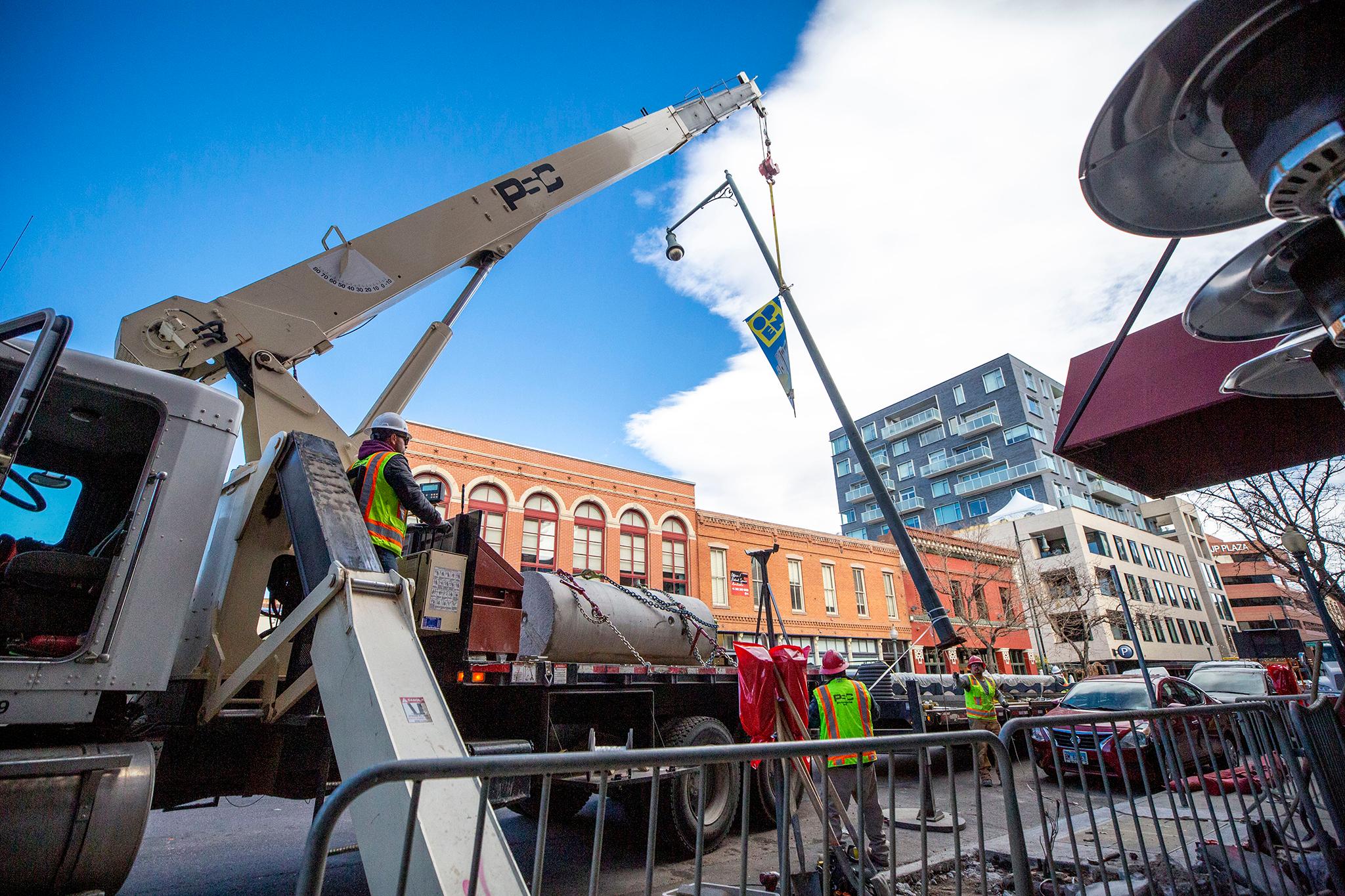It's been four years since Warm Cookies of the Revolution turned an Elyria-Swansea house into an interactive art space, pushing for a participatory budgeting process in the city.
Participatory budgeting, or just "PB," is a system in which people get to decide how their civic institutions spend cash. Since the art house project, officials have set aside $2 million and held tons of public meetings to set up PB in Denver. This summer, they've collected about 600 ideas, but they still want more. Denver's finance department has extended the submission deadline to July 31st, so if you've got an idea, now's the time.
Only capital projects - physical things like lights, bridges, roads, sidewalks, etc. - are eligible to make it on the ballot.
It's also worth noting that Denver won't blow the whole fund on one project. They're splitting the cash between one pot for "underserved" neighborhoods like Montbello and East Colfax - ideas for those areas must come from within those communities. The rest can be spent on other neighborhoods.
Once all of the ideas are in, delegates from around the city will narrow them down and send a slate of options to voters, who won't be subject to restrictions on age and citizenship. Anyone over 10 can serve as a "budget delegate" for the narrowing phase. You can still apply to be part of that process, too.
PB is already revealing what people really want out of their government.
Last year, we explored what the PB money could actually buy. It's not much compared to the complete citywide budget, which is over $1 billion, but it's not nothing. That $2 million could pay for about two miles of protected bike lanes (on both sides of a road), 34 "high intensity" crosswalk beacons or 100 light poles.
Kiki Turner, a city spokesperson who's been running public meetings for this project, said this is about more than spending the current bucket of cash. The process also helps everyone understand how lawmakers, city agencies and neighbors want the city to change.
"We've heard from other cities that one of the most important parts of participatory budgeting is fellow neighbors hearing from their neighbors about what their neighborhood could look like," she said. "We're hoping we can reach people who typically don't get involved with government."
Beyond the typical neighborhood meetings, Turner and her colleagues have also canvassed for ideas at food banks, jails and sanctioned camping sites for people without permanent homes. A lot of the things people are asking for, she told us, are services (not capital projects) that can't be part of this particular process.
In a meeting with incarcerated women, she learned people want more support when they leave jail, maybe a shuttle or better job counseling. The shuttle itself could be paid for with PB money, but the drivers - or employment case workers - could not. Still, Turner said she's sending ideas like these to other city departments where they could benefit from less-restrictive funding pools.
Many of the service-based ideas she heard in these meetings revolve around kids: youth programs and summer camps to keep kids safe and out of trouble.
They've also gotten a ton of ideas that just might work.
In line with safety for kids, Turner said a lot of people have asked for better lighting in northeast Denver parks, where violence has taken place after dark.
Some people have asked for permanent chessboards in parks; some even asked that they come with Wi-Fi.
People in neighborhoods with narrow sidewalks have asked for more room to roll or stroll, though there is a separate ballot measure in the works to do just that.
Residents of Montbello and Green Valley Ranch have asked for splash pads.
There have also been requests for electric vehicle charging stations, though the city is working on that on their own.
Turner heard from westside residents that they'd like safer crossing areas for kids who need to cross Federal Boulevard.
And then, there are less conventional ideas that still, technically, could make the ballot.
"Someone wanted bees," she told us, and asked for a pollinator colony that sparked some strange conversations about whether bees are infrastructure.
Someone else asked for a water slide into the South Platte River. Through the conversation, she said, the idea evolved into something about better water quality.
The beauty of the process is that officials will really only act as moderators, Turner told us, and it's totally on residents to decide which eligible ideas get funded. There's a bit of mystery and some wild cards left to be uncovered.
"We have no idea what could make it all the way through," she said. "It should be a really exciting process."












